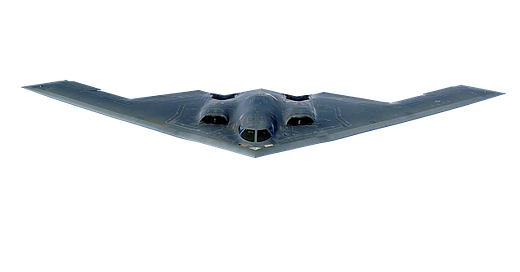Israel’s strikes on Iran prepared the way for a blow – directed by President Donald Trump and carried out by America’s Central Command – to the Tehran regime’s nuclear facilities. The one-two punch, which didn’t derail the mullahs’ nuclear ambitions, has nevertheless unnerved Iranians, aroused jubilation among Israelis and their friends, and sent shock waves throughout the world.
Public reaction is sorting itself out. As I write this, a shaky, Trump-imposed ceasefire is starting to take hold. We wonder what could happen next. Pundits speculate about whether all of this is just more of the political distraction and grandstanding we’ve seen before from Trump and Netanyahu. Jewish people want to gauge the situation’s practical, every-day impact on their lives.
Israelis feel the effects directly. Along with euphoria came terror. Their ordinary 24/7 pursuits were disrupted as sirens blared, citizens rushed to shelters, and rockets smashed into buildings, disrupting the normal flow of daily life, injuring, killing and traumatizing civilians.
Staring extinction in the face is nothing new for Jews, but over the past century a change has occurred: Nearly half our population is concentrated in one tiny geographical area that is a de facto war zone. The target of incessant, open threats, Israel, for the first time since Biblical days militarily powerful but surrounded on three sides by unfriendly neighbors and required to subdue a hostile local population, must exert its considerable might to prevent being driven into the sea.
Outside of Israel, the impact of this tense and terrifying drama has been less immediate, the response to it less intense and more detached and dimmed, even while powerful emotions and strongly held, conflicting attitudes come into play.
My sense is that Jewish individuals and communities in these settings (such as the U.S., where I’ve been for several months) far from the war zone are not quite tuned into the actuality of what happened in cities, villages and agricultural settlements – all the places where Jews live and work, study, shop and gather – throughout eretz yisrael.
The nation’s everyday course of hustle and bustle didn’t come to a standstill during this latest round of violence but was seriously disrupted: Flights were canceled, synagogue worship suspended, parties called off.
Synagogues, federations and other Jewish organizations in the Diaspora put out statements, either (in more traditional mainstream settings) endorsing the bombing of Iraq’s nuclear, ballistic, and intelligence capabilities or (in circles less hospitable to the Zionist cause) voicing worry and alarm over, if not condemnation of, it. Such expressions of concern do not interrupt the ongoing course of home rituals, religious services, cultural events, and social gatherings. Jewish business and pleasure as usual go on.
Whether or not Iran’s fanatical Islamist rulers overcome the recent setback and succeed in weaponizing their nuclear program, they’ve never made a secret of their intention to destroy Israel somehow: “The foundation of the Islamic regime is opposition to Israel and the perpetual subject of Iran is the elimination of Israel from the region”(Ayatollah Khamenei, January 2001 statement).1
But they’ve been keeping a secret.
Even after Trump, in 2018, scrapped an agreement to monitor and limit Iran’s nuclear program, the mullahs persisted in denying they wanted to build nuclear bombs. Yet, they evaded and flouted independent efforts to verify that program’s uranium enrichment status.2
Khamenei, Iran’s “Supreme Leader,” is a Holocaust denier and anti-Jewish conspiracy theorist. (Remember that other antisemitic conspiracy theorist who made deals with Chamberlain and Stalin and then broke them, plunging Europe into world war?) Negotiate with such men?
Some compare Trump – for his recent Israel-friendly decisions – to Cyrus the Great, the 6th century BCE Persian monarch who let Jews return from exile to our homeland. Cyrus’s generous patronage did not stop Persia’s prime minister Haman, in the next century, from trying to kill us all off – this, according to the book of Esther. She hesitated before summoning courage to confront the villain whose plan was, the same as Khamenei’s, genocidal.
Jews of the Diaspora are at risk no less than Israelis directly in the line of Iranian rocket fire. We might, as Esther did, flinch from admitting, and confronting, the danger. Instead of going about things as usual, though, Jews beyond the reach of imminent attack should know that they too stand in Iran’s crosshairs.
Deny the Iranian agenda at your peril. Israel and Jews are first, not last, in line of fire; America, the West, and Muslim “infidels” come next. Agree or disagree with the Israeli-American coordinated strike on Iran; identify and be in solidarity with Israel or not. Just don’t pretend that what’s happening “over there” doesn’t affect you “here.”
Either way, the real-life impact will hit home sooner or later. Take seriously the threat to you.
(U.S. B-2 bombers delivered payloads on Iran’s nuclear facilities. / https://cdn.pixabay.com/photo/2022/05/26/21/28/b-2-spirit-7223853_1280.png)
(F-35 stealth figher jets were essential to Israel’s strike on Iran / https://cdn.pixabay.com/photo/2025/03/12/11/05/f-35-9465070_1280.jpg)
https://www.bbc.com/news/articles/ce3v6w2qr12o ; https://www.usatoday.com/story/news/politics/2025/05/31/iran-nuclear-activities-watchdog/83967345007





You're welcome, Marcia. I hope all of us find our voice. It's important to speak out! Shabbat Shalom! Seth
Thnk you for voice. 🇮🇱